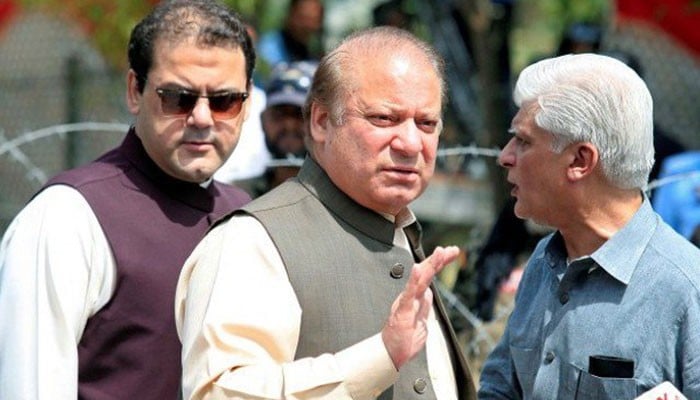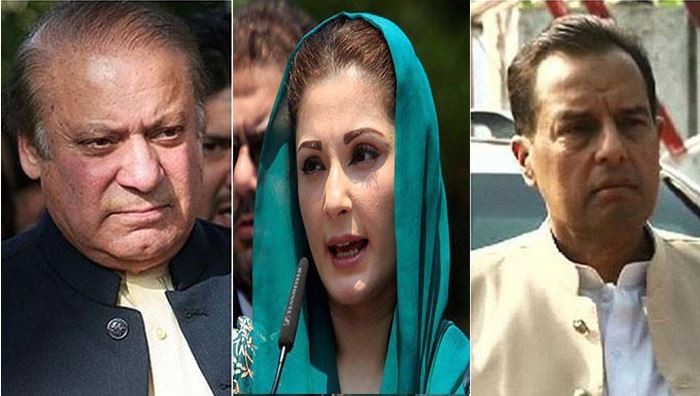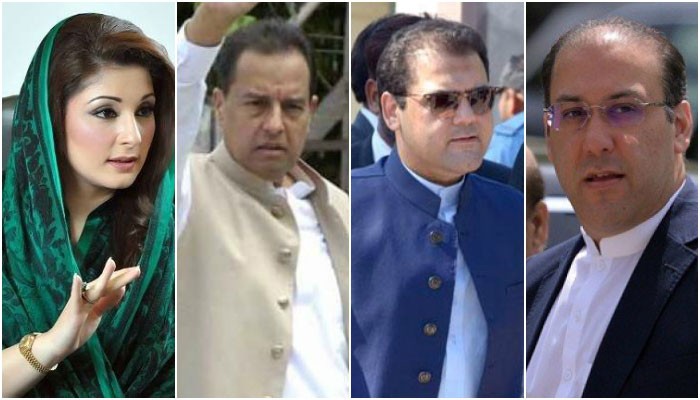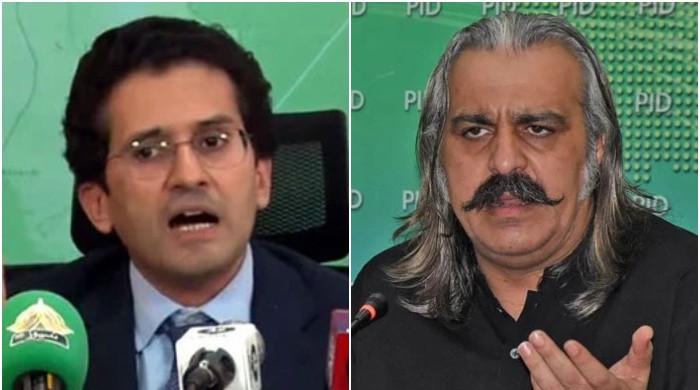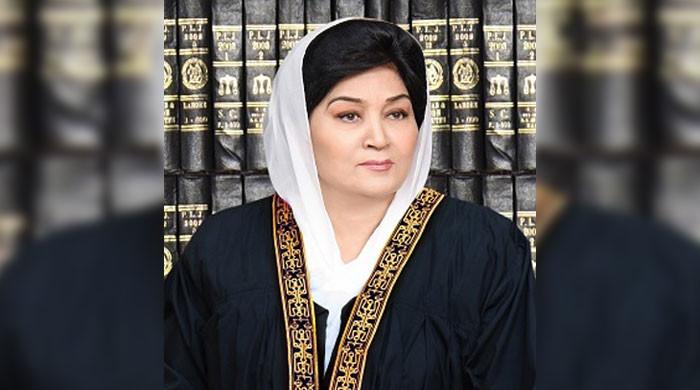Nawaz moves IHC against separate indictments
Former PM pleads court to halt accountability court proceedings until three references are merged into one
October 25, 2017

ISLAMABAD: A divisional bench of the Islamabad High Court (IHC) sent notices to the federal government on Wednesday over former prime minister Nawaz Sharif's plea seeking to stop the indictment proceedings against him in an accountability court.
A divisional bench comprising Justice Mohsin Akhtar Kiyani and Justice Aamer Farooq heard Nawaz's plea.
The hearing was then adjourned until November 2.
Earlier today, Nawaz, through his representative Zafir Khan, submitted three petitions in the high court challenging the accountability court’s October 19 decision to indict him in the Avenfield properties and Azizia Steel Mills reference.
He was indicted in the third and last — Flagship Investment Ltd — reference on October 20.
The accountability court is hearing corruption references filed by the National Accountability Bureau against Nawaz and his family members, as well as Finance Minister Ishaq Dar, in light of the Supreme Court's order in the Panama Papers case.
In his petition, Nawaz has pleaded the IHC to declare the October 19 decision illegal and order the accountability court to combine the three references against him into one.
He has also pleaded that there should be one trial on one charge instead of separate cases.
Similar plea in Supreme Court
On October 13, the former prime minister filed a similar plea in the Supreme Court seeking the quashing of 'concurrent' corruption references against him.
The plea asked the Supreme Court to halt the accountability court proceedings of the three references against the Sharif family until a single reference is filed.
The plea, filed by Nawaz's legal team under Article 184 (3) of the Constitution, states that Section 9 (a) (5) of the National Accountability Ordinance holds that the reference against possession of assets beyond known sources of income should be one and not spread over several references.
The petition is yet to be taken up by the apex court.
Hearing due tomorrow
During his indictment on October 19, Nawaz was present in London seeing to his ailing wife.
He was represented by Zafir Khan, who has submitted the petition in the IHC today.
During the hearing, Nawaz's counsel, Ayesha Hamid, pleaded the accountability court to suspend proceedings until the Supreme Court decides on her client's plea regarding the re-filing of references. However, the plea was dismissed by Accountability Judge Mohammad Bashir.
The case against Nawaz, his daughter Maryam and son-in-law MNA Capt (retd) Safdar will resume on Thursday (tomorrow) when the first prosecution witness is expected to record his statement.
The former premier is expected to arrive in the country for the hearing from Saudi Arabia.
The references
The NAB has in total filed three references against the Sharif family and one against Finance Minister Ishaq Dar in the accountability court, in light of the Supreme Court's orders in the Panama Papers case verdict of July 28.
The anti-graft body was given six weeks, from the date of the apex court's order, to file the reference in an accountability court while the accountability court was granted six months to wrap up the proceedings.
The references against the Sharif family pertain to the Azizia Steel Mills and Hill Metals Establishment, their London properties and over dozen offshore companies owned by the family.
Maryam and Safdar are only nominated in the London properties reference. At an earlier hearing, the court also approved Maryam and Safdar's bail in the Avenfiled properties case and ordered them to submit surety bonds worth Rs5 million each.
Safdar was also directed to take the court's permission before leaving the country from now on. The judge also provided a copy of the reference — spread over 53 volumes — to Maryam and Safdar.
NAB's Rawalpindi branch prepared two references regarding the Azizia Steel Mills and Hill Metals Establishment, and the nearly dozen companies owned by the Sharif family.
Its Lahore branch prepared a reference on the Sharif family's Avenfield apartments in London and another against Finance Minister Ishaq Dar for owning assets beyond his known sources of income.
If convicted, the accused may face up to 14 years imprisonment and lifelong disqualification from holding public office including the freezing of bank accounts and assets.
